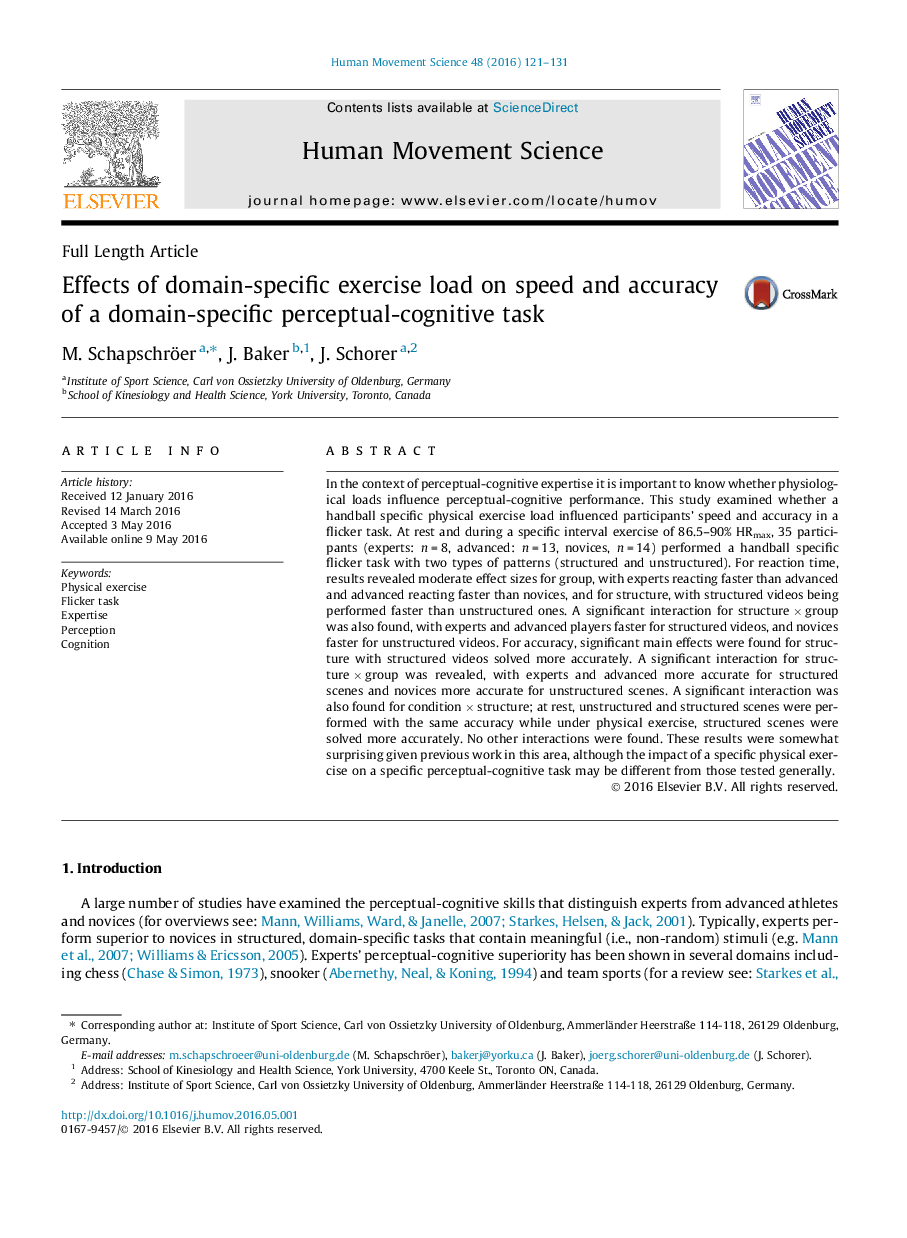| Article ID | Journal | Published Year | Pages | File Type |
|---|---|---|---|---|
| 928192 | Human Movement Science | 2016 | 11 Pages |
In the context of perceptual-cognitive expertise it is important to know whether physiological loads influence perceptual-cognitive performance. This study examined whether a handball specific physical exercise load influenced participants’ speed and accuracy in a flicker task. At rest and during a specific interval exercise of 86.5–90% HRmax, 35 participants (experts: n = 8, advanced: n = 13, novices, n = 14) performed a handball specific flicker task with two types of patterns (structured and unstructured). For reaction time, results revealed moderate effect sizes for group, with experts reacting faster than advanced and advanced reacting faster than novices, and for structure, with structured videos being performed faster than unstructured ones. A significant interaction for structure × group was also found, with experts and advanced players faster for structured videos, and novices faster for unstructured videos. For accuracy, significant main effects were found for structure with structured videos solved more accurately. A significant interaction for structure × group was revealed, with experts and advanced more accurate for structured scenes and novices more accurate for unstructured scenes. A significant interaction was also found for condition × structure; at rest, unstructured and structured scenes were performed with the same accuracy while under physical exercise, structured scenes were solved more accurately. No other interactions were found. These results were somewhat surprising given previous work in this area, although the impact of a specific physical exercise on a specific perceptual-cognitive task may be different from those tested generally.
